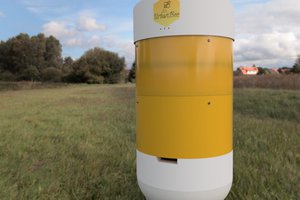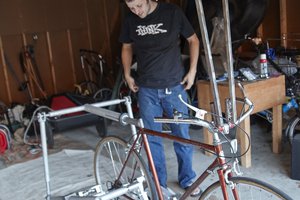The pads can individually apply pressure and cooling.
To manage the amount (and type) of pressure and temperature on each pad, they
have a control surface consisting of touch sensitive rubbery ribs.
You will be able to interact with the helmet relaying only on your sense of
touch.
Each pad is made of silicone. They have a cavity designed to distribute
pressure evenly to one size of the pad. This cavity will be connected to a
mechanical pump that controls the amount of gel pushed into the pad.
The pump can apply constant pressure, but also generate pulsating movement for
a massaging effect.
For the design of this system a good starting point are the resources provided by the
Hardvard Biodesign Lab's Soft Robotics Kit (https://softroboticstoolkit.com/)
The next layer closer to the skull will embed a net of tubing for transporting
coolant and regulate the temperature. Cooling is a big relief agent
for my type of migraine.
A thermoelectric system with a small pump will do the job.
Comfort is one of the biggest design consideration. So, a lot of iterations and
tests will be spent on the overall fit of the helmet and how if perform in all
sort of laying/sleeping positions and with different pillow types.
Integrating the tube and connector from the helmet to the floor unit will be a mayor
challenge needed to be addressed as early in the design process as possible.
Noise and vibrations from the floor unit need special attention as Migraines
tend to create a state of hypersensitivity.
This could be nice collab project as it requires a diverse set of skills:
fabrics, wearables, casting, electronics, mechanics, hydraulics, design and
usability. It's somewhere in the middle of my priority list but as soon as
I have the slightest headache it jumps straight to the first spot.
 Ronald Jaramillo
Ronald Jaramillo

 Joel Villa Farias
Joel Villa Farias

 Joseph Prosnitz
Joseph Prosnitz
 MasterOfNull
MasterOfNull
Very interesting project, have you consider using the peltier gauges directly in the helmet and using the presure variatior as a neumatic system?, like the electronic ones used for mesuring blood presure?
In that case it would be easier to make the reverse engineering since there are systems already in use.